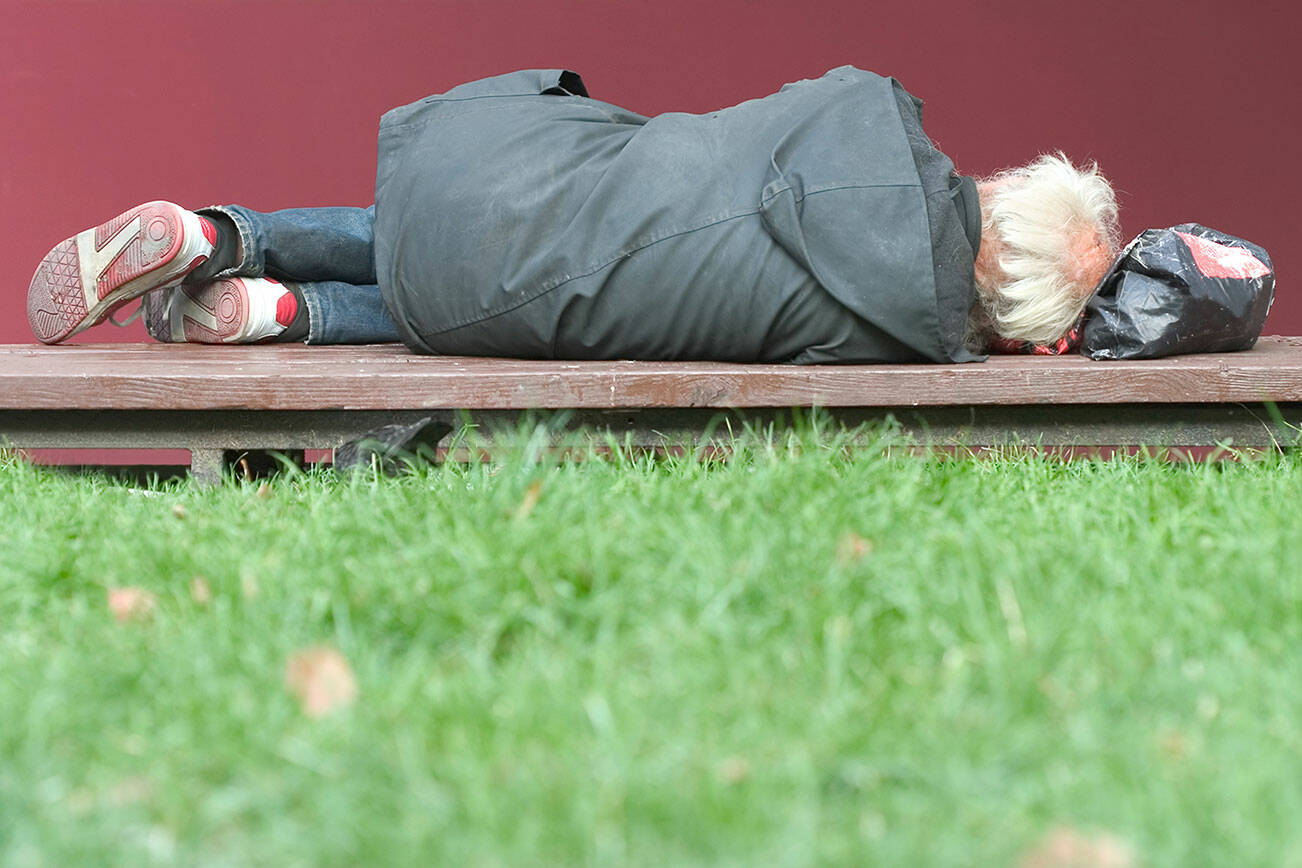A new approach to data collection is giving B.C. a better look at how many people experience homelessness in the province annually.
On Wednesday (March 16), the province released a report titled Preventing & Reducing Homelessness: An Integrated Data Project. The report looked at data collected from income assistance, shelter visits, health-care data and community point-in-time homelessness counts to give a more accurate estimate of homelessness in B.C.
READ MORE: Renter rebate off the table, but $600 rent supplements coming for vulnerable groups
The data in the report was collected in 2019 and does not reflect how homelessness has changed over the course of the pandemic. However, according to the report, 23,000 unique individuals experienced homelessness in 2019 and on average, 9,300 unique people experienced homelessness each month.
Of those, 48 per cent of people were chronically homeless — meaning they spent six to 12 months receiving income assistance with no fixed address, spent more than 180 days in a shelter, or had three or more unique visits to a shelter separated by a 30-day period. Men are overrepresented in the data, making up 66 per cent of people who experienced homelessness in 2019 and in those aged over 55, men represented an even larger proportion at 77 per cent.
A majority of B.C.’s homeless population reported mental health and addictions issues with 67 per cent reporting an addiction and 51 per cent reporting a mental health issue — 66 per cent identified two or more health concerns while only 10 per cent did not have any health concerns.
READ MORE: 6 people died per day from B.C.’s toxic drug supply last year
The report found the largest amount of people experiencing homelessness were in larger population centres like Metro Vancouver, the Fraser Valley and the Capital Regional District around Victoria. However, the highest per-capita rates were in Fraser-Fort George, Cariboo and Alberni-Clayoquot.
A lack of income was the most common reason for a loss of housing in B.C., followed by substance-use issues, conflicts with landlords and conflicts with spouses or partners.
READ MORE: Canada’s average home price hit record $816,720 last month as supply began to rebound
Attorney General and Minister Responsible for Housing, David Eby, said at a news conference that the new report was the most accurate count of homelessness in B.C. to date.
In past years, the province has been reliant on community point-in-time homelessness counts to determine how many people are experiencing homelessness in a given area. The point-in-time counts are believed to be undercounted as they often only show how many people were experiencing homelessness on a given day and do not reflect hidden homelessness or people who seek shelter in less public areas.
Eby said that people experiencing hidden homelessness are often women who may choose to stay in unhealthy relationships, with friends or in their vehicles rather than sleeping on the streets.
The province also released the 2020-2021 point-in-time homeless counts that were taken in 25 communities across B.C. Data from those counts suggests 8,665 people experienced homelessness at the time of the counts. While the demographics were similar to those seen in the 2019 data, the most recent count found 222 children under age 19 and accompanied by a parent or guardian were included in the count.
Eby outlined measures the province has taken to address homelessness, including extending support for youth in care to age 27, expanding mental health and addictions services, creating a rent bank to provide rental assistance and the Shelter Aid for Elderly Renters (SAFER) grant to help keep seniors housed among other measures.
READ MORE: 105 new spaces coming to innovative B.C. addictions and mental health treatment centre
READ MORE: New seniors building opening soon in Vanderhoof the 1st of its kind in B.C.
He also said the province was working to address gaps in affordable housing for people on disability assistance to make sure that housing available to them is affordable and meets their accessibility needs.
The province will unveil their strategy for homelessness on Thursday (March 17). Eby will be joined by Minister of Mental Health and Addictions Sheila Malcolmson, Minister of Children and Family Development Mitzi Dean, Minister of Social Development and Poverty Reduction Nicholas Simons, as well as advocates from the Homelessness Services Association of BC and A Way Home Kamloops.
@SchislerCole
cole.schisler@bpdigital.ca
Like us on Facebook and follow us on Twitter.

